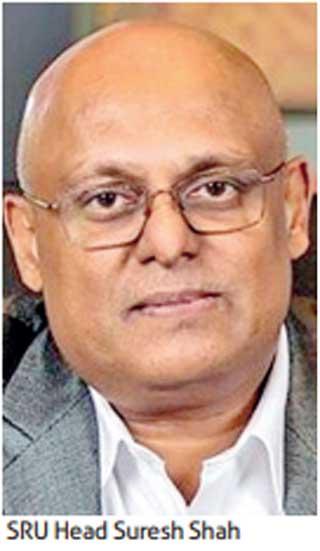Reply To:
Name - Reply Comment
 The Cabinet of Ministers in principle has green lighted the divestiture of seven state-owned enterprises (SOEs).
The Cabinet of Ministers in principle has green lighted the divestiture of seven state-owned enterprises (SOEs).
They are SriLanka Airlines including Sri Lanka Catering, Sri Lanka Telecom PLC (SLT), Sri Lanka Insurances Corporation (SLIC), Canwill Holdings Pvt. Ltd. (Grand Hyatt Colombo), Hotel Developers Lanka Ltd. (Hilton Colombo), Litro Gas Lanka Ltd. Including Litro Gas Terminal Pvt. Ltd and Lanka Hospitals Corporation PLC.
The State-owned Enterprises Restructuring Unit (SRU) yesterday said it would appoint reputed, qualified and experienced consultancy firms and/or development financial institutions to provide transaction advisory services to assist with the divestitures.
SRU said the process of selecting such transaction advisors would commence shortly.
The transaction advisors are expected to assist SRU with sell-side due diligence, valuation, data room creation, transaction strategy and marketing of the entities to be divested.
“The divestiture programme will be carried out by the SRU in a transparent and credible manner and investor selection will commence with an EOI/RFP process to be published in the local and international press,” a statement by SRU said.
SRU, headed by business leader Suresh Shah, who is also an ex-Chairman of Ceylon Chamber of Commerce, was established under the Ministry of Finance, Economic Stabilisation and National Policies to restructure the SOE sector, which for many years has been a severe burden on the Sri Lankan economy.
Under Sri Lanka’s ongoing International Monetary Fund (IMF) programme, SOE restructuring has been identified for reforms on a priority basis.
SRU noted that the SOE reforms envisaged are expected to contribute towards higher economic productivity by reducing market distortions, increasing organisational efficiency and improving the quality of service to the public.
Meanwhile, Sri Lanka expects to earn US$ 4 - 4.5 billion from the sale of both profit-making and loss-making SOEs. According to recently released IMF documents on Sri Lanka, total exposure to the public sector accounts for over 40 percent of banks’ assets, including two large state-owned commercial banks’ exposures to
insolvent SOEs.
Sri Lanka’s IMF programme, which got the Board Level approval this week, will strengthen the governance of SOEs and address their debt overhangs.
The SOE reforms included in the programme are: Cabinet approval of a comprehensive strategy to restructure the balance sheets of CPC, CEB, the Road Development Authority, and SriLankan Airlines by June 2023 (structural benchmark), prompt publication of audited financial statements for all 52 major SOEs, and prohibition of new FX borrowing by nonfinancial SOEs with limited FX revenues.
In addition, the authorities are expected to further strengthen SOE governance by clarifying the mandates of key SOEs through Statements of Corporate Intent, and by reviewing the framework for selecting SOE board members. Carrying out SOE reforms in Sri Lanka is not at all an easy task as sale of privatisation of SOEs are strongly opposed by trade unions.